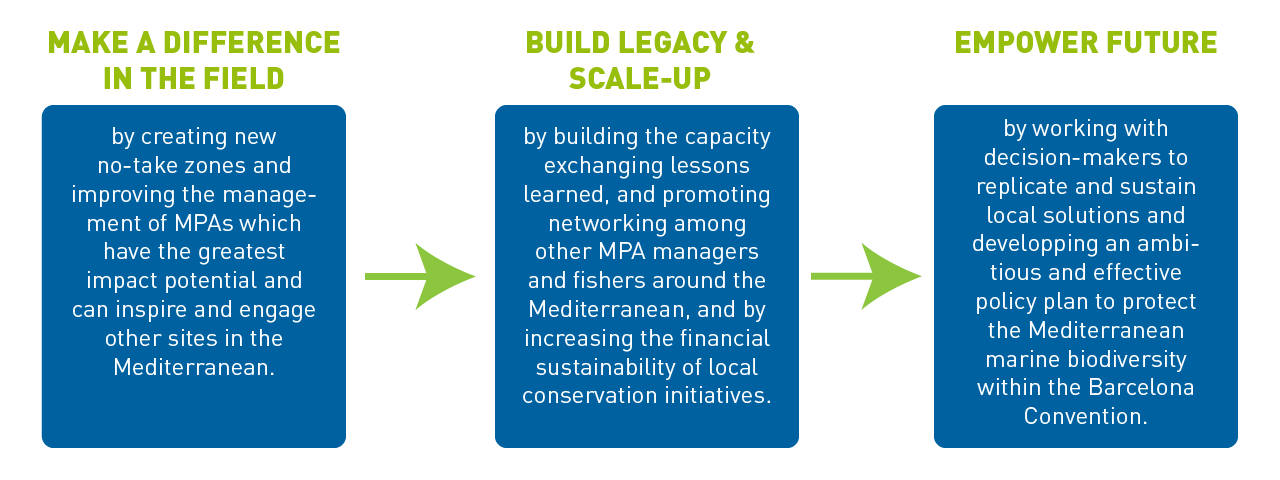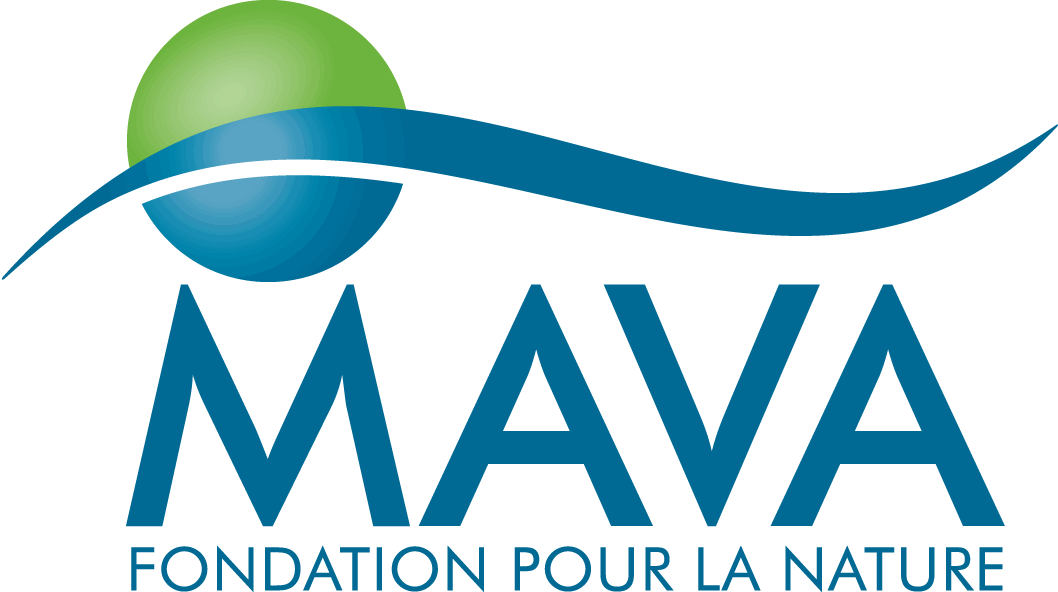Co-managed No-Take Zones/MPAs project
Title:
Empowering the legacy: scaling up co-managed and financially sustainable No-Take Zones / Marine Protected Areas
Start and duration:
30/07/2020 for a duration of 30 months
Context:
The Mediterranean Sea is a biodiversity hotspot, concentrating nearly 18% of the world's known marine species, although it represents only 0.3% of the total volume of the oceans. It provides vital services for human life, such as oxygen production and carbon sequestration, notably through marine vegetation and coralligenous habitats. The sea also contributes to food security by providing almost 20% of protein production.
The Mediterranean is rich, but under pressure. More than 3/4 of fish stocks are overexploited. Posidonia meadows, which are known as the lungs of the Mediterranean, have decreased by 30% over a period of 50 years. Better conservation and management of biodiversity is more necessary than ever for a sustainable Mediterranean.
Marine protected areas are an effective tool for restoring species populations and improving the marine habitats status. However, less than 2% of the Mediterranean is covered by effectively managed MPAs. Out of more than 1,000 existing MPAs, very few have shown an increase in fish biomass and diversity. Moreover, only 0.04% of the basin is covered by no-take zones, that allow fish stocks to recover.
Objective:
The objective of this project is to provide solutions to improve the management and governance of marine protected areas and strengthen the protection of certain zones in the Mediterranean.
Each site will showcase specific approaches and tools to address recurrent issues in terms of governance, design, financing, and enforcement and enable inspiration and potential replication.
In each of the project sites, fishers -together with other key stakeholders- will be empowered through participation. As part of the decision-making process, fishers will develop their management solutions that ensure profitable fisheries for the future and ensure the willingness to maintain their engagement beyond the end of the project.
The project is designed to ensure an impact far into the future. The financial sustainability of the local initiatives will be guaranteed by building financial skills at a local level, testing and implementing financing mechanisms, and attracting new investors. Project results will be scaled-up at a regional level by supporting capacity building, disseminating and exchanging lessons learned, promoting networking in order to amplify the impact and increase the potential of replication by inspiring and involving other MPAs and fishers of the Mediterranean countries and beyond.
SPA/RAC main activities within the project:
In the pilot sites of the future Marine and Coastal Protected Area of the Kuriat Islands, Al Hoceima National Park and the Foça Special Environmental Protection Area:
- Updating of management plans with particular attention to reducing the impact of fishing activities on key marine habitats, based on the results of the MedKeyHabitats II project.
- Capacity building of key stakeholders in monitoring key marine habitats (training, equipment, etc.).
- Development of a monitoring strategy to mitigate illegal fishing activities on sensitive marine habitats.
At the level of the Jbel Moussa pilot site :
- Promotion of sustainable and small-scale fishing through the implementation of the Integrated Management Plan for the Jbel Moussa Site of Biological and Ecological Interest (SIBE).
At the level of the pilot site of the future Marine Protected Area of the island of Rachgoun :
- Socio-economic study of fishing activity and identification of mechanisms for participation of local stakeholders concerned by the future MPA of Rachgoun Island.
At national level (Algeria, Morocco, Tunisia and Turkey):
- Elaboration and adoption of two national action plans for the conservation of marine vegetation and for the conservation of the coralligenous.
At regional level :
- Advocacy among the representatives of Mediterranean countries to adopt and implement the post-2020 PASBIO and the post-2020 Strategy for MPAs/OECMs in the Mediterranean, including sound measures on no-take zones and the effective and sustainable management of MPA/OECM.
Sites where activities will be implemented:

Target groups:
MPA managers, practitioners and relevant authorities and stakeholders in the countries concerned by the project.
Partners:
Eight direct partners:
Four indirect partners:
Four associated partners:
Project funders
Main funder: MAVA Foundation

SPA/RAC also contributes through self-financing.
For more information on the MPA/NTZ Project, please contact
The designations employed and the presentation of material in this website do not imply the expression of any opinion whatsoever on the part of the Secretariat of the United Nations concerning the legal status of any country, territory, city or area or of its authorities, or concerning the delimitation of its frontiers or boundaries.



